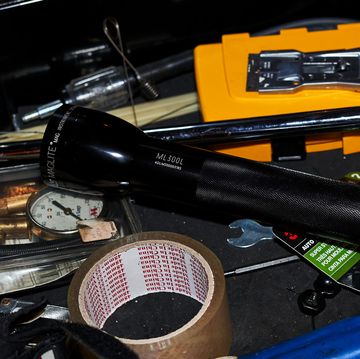Five billion dollars.
That's the amount of money regular people had removed from their bank accounts and given to crowdfunding campaigns as of the end of 2013. Five b-b-billion, a $3.5 billion increase from two years earlier. And what's amazing isn't just the raw number or the exponential upward trend. What's amazing about the evolution of crowdfunding—the process by which people ask strangers for money to help fund a project, but the strangers only have to pay if all the money is raised—is the asininity, dubiousness, and sometimes even fraudulence of some of the projects.
Let's take a look, shall we, at Esther the Wonder Pig, the poster beast of crowdfunding frivolity. Two Canadian guys adopted her a couple of years ago, thinking they were getting a mini pig. She ballooned to 533 pounds. They couldn't bear to lose her—she had led them to an epiphany about animal welfare or something—so they went vegan and launched an Indiegogo campaign to build a farm sanctuary for Esther and other would-be ham sandwiches. By July they had surpassed their $375,000 funding goal.
Then there's Solar Roadways, an Idaho-based startup owned by Julie (a psychotherapist who breeds poodles) and Scott (an electrical engineer) Brusaw. Their idea: Lay down solar tiles like high-tech cobblestones to cre- ate walkways and driving surfaces that generate electricity and melt snow. Earlier this year the Brusaws sought $1 million on Indiegogo and ended up with $2,200,716. "We asked for $1 million to hire an initial team of engineers to help us make a few needed tweaks in our product and streamline our process, [and] go from prototype to production," the Brusaws wrote. Never mind that a lot of experts have laughed the concept off the drawing board.
Kickstarter rules crowdfunding. As CEO Yancey Strickler says, "There's Kickstarter, and there's everyone else." Launched five years ago, it had landed $1.2 billion by July 2014. The company takes a 5 percent cut if a project reaches its goal, and 42 percent of them do. Pretty good paycheck there. No wonder Strickler thinks every effort, even a bloated one like Solar Roadways, is worthy. "People are only going to back something if they believe in it," he says. As long as the crowd votes with its wallet, he contends, the market will grow. And he's stoked that Kickstarter has become a cultural force, declaring, "We get as many Google searches as Brad Pitt does."
Setting aside the ridiculousness of that statement, crowdfunding magnifies some interesting truths about Americans' spending. Emotion and impulse can thwart critical thinking. When something goes mainstream—as Esther the Wonder Pig did—and the crowd spends absurdly, others feel okay following suit. To wit, 239 people recently gave $21,709 on Kickstarter to fund an artist's "hand-sculpted miniature Ice Age mammal set."
The Tumblr Your Kickstarter Sucks spoofs absurd projects, even though the guys behind it support crowdfunding. Cofounder Michael Hale cites the Reading Rainbow, a children's literacy effort that raised $3.5 million beyond its $1 million goal. "These kinds of projects are a force for good," Hale says. As for the other stuff? "We're not here to bully or attack people. But there is such an amazing wealth of bad content, and we are attempting to separate the wheat from the chaff. There is a lot of chaff. There is a metric shit-ton of chaff."
Posh $375,000 digs for a quarter-ton pig in Canada? That money could have taught an awful lot of kids how to read.














